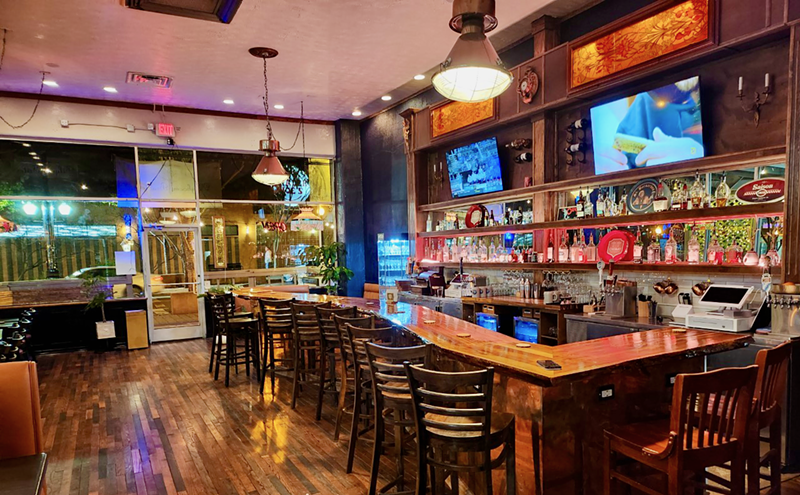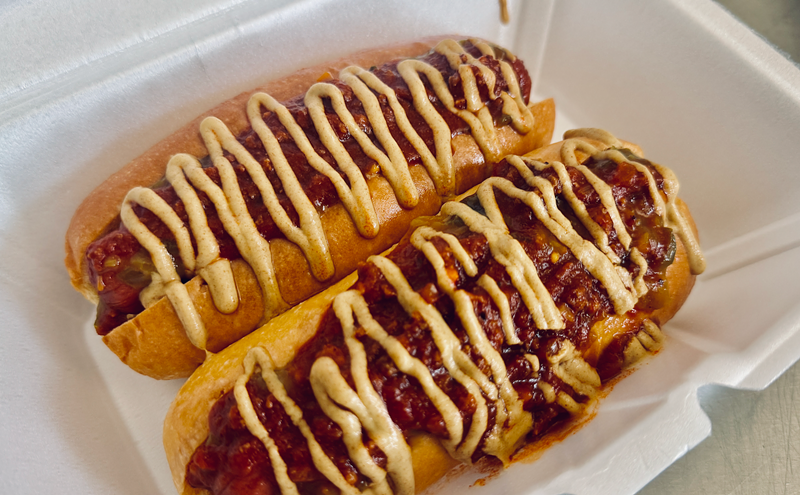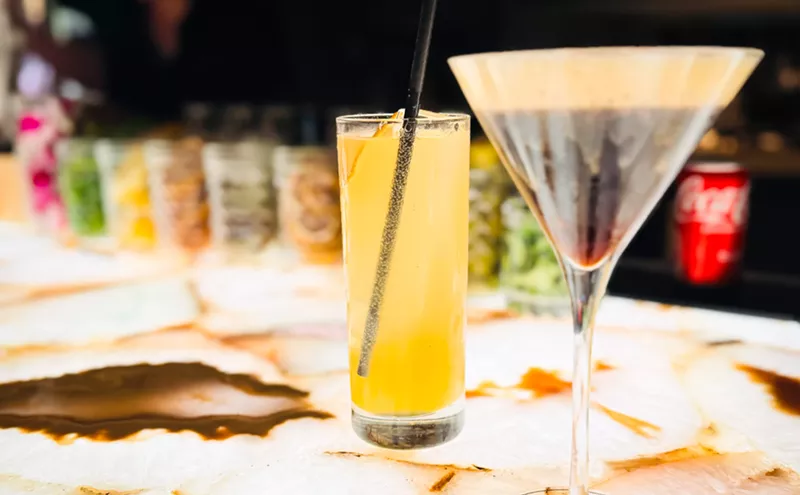Yet instead of correcting our miscast derision, the poet of the American mind understood, took our side, joined us as we railed against authority and encapsulated our thoughts in one powerful phrase--"take this job and shove it."
This week's Burning Question pays homage to Lytle--otherwise known as Johnny Paycheck--and his dance with the anti-authoritarian in all of us: What is the worst job in food service?
"People ask me, 'Don't you get hungry seeing all of that food all the time?'" says a waitress at Chili's with evident disbelief. "Yeah, when I bring the food out it looks good, but not when I clear a table of half-eaten scraps." Now, the food-service industry ranks as the nation's largest private-sector employer. Restaurants rake in more than $390 billion annually. And one out of every three adult Americans spent some portion of their lives carrying trays, serving drinks or saying things like, "You want fries with that?" Still, the work is often difficult and thankless. Patrons typically see only the end result of a long and arduous process--directing their praise at servers or chefs while ignoring scores of bus boys, dishwashers, purveyors and others working behind the scenes.
Their day-to-day work involves such unenviable tasks as cleaning up vomit, bearing customer gripes with a smile, cutting drunks off from further consumption, taking out garbage and unblocking stopped-up toilets--although this last gruesome task often falls on the manager. "You can delegate, but on a busy night you can't pull anyone off the floor," explains Biff Winsor of Jaxx Café. "A good manager knows every job in the house."
Some food-industry jobs are actually dangerous. According to a 1999 study published by the National Institute for Occupational Safety and Health, teen-age restaurant workers suffered 44,800 work-related injuries that year. Even worse are occasional stories of robbery or death. Job-related homicide is the second-highest cause of deaths for teen-age workers. Workplace violence accounts for almost 70 percent of deaths in the retail industry--including fast food and convenience stores--during any given year.
Clearly a number of disturbing possibilities await anyone who takes a job at a restaurant or bar--from risking death to shoveling shit.
"There's no great job, so it's hard to narrow it down," says Carly Miller of the Inwood Lounge. Experts indeed disagree on the worst job in the food-service industry, but most settle on one of two distinctly nauseating duties.
"Cleaning the grease trap, now that's the hardest," exclaims a manager who wished to remain anonymous, referring to the simple box that separates grease and solid waste (no, not what you think) from the wastewater restaurants dump into the city sewage system. Every few weeks, depending on the size of the establishment and the trap itself, someone must clean out the system. "It's the worst smell you ever smelled in your life," the manager claims, "especially the way they used to do it."
In the old days, an unfortunate employee would open the trap, lean in, scrape out the accumulated waste and dump it by hand into a disposable container. "Now they stick a pipe in and suck out the grease." Many restaurants prefer to hire outside firms to clean the traps and get rid of the waste.
"Grease traps would be one of the nastiest," Winsor acknowledges, "but that's generally contract work." It's also a periodic task rather than a day-to-day grind. No, for pure pathos, one job stands out. "The dishwasher, now that's the hottest, dirtiest, wettest job," Winsor says, "and it's constant for eight hours."
"People dump plates, food gets all over you," agrees Jonathan Gardner of Cheddar's in Irving. "I've cleaned grease traps and washed dishes, and dishwasher is the worst."
Lindsey Lane, a former Dallas-area waitress, describes dishwashing in hopeless, mournful terms, worthy of country music. "It's so hot, and it's never ending," she says. "And it's not very lucrative." Dishwashers generally earn around $6 an hour, although some restaurants offer tip-sharing plans. Yet according to the Arizona Restaurant Marketing and Services Co., their "hands-on" knowledge of waste holds the key to profitability. Dishwashers can point out dishes served in overly large portions, dishes routinely left partially eaten because of poor preparation and so on.
"You're constantly in garbage, and no one knows who you are," says Winsor. "Yet it's one of the most crucial jobs in the industry."
The Burning Question crew only hopes Nashville is listening.












